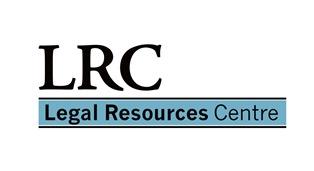Full bench to hear arguments on property foreclosures and sales in execution
Today and tomorrow, (28 and 29 August 2018), the Legal Resources Centre will be making oral submissions before the full bench of the Johannesburg High Court on behalf of the Lungelo Lethu Human Rights Foundation (LLHRF) in the matter between ABSA Bank Limited and D K Mokebe and three other matters. This case is related to the Court’s practice in foreclosures and sales in execution.
On 13 April 2018, four unopposed applications relating to the foreclosure of bonds over primary residences were referred for hearing by the full court in Johannesburg. The main reason for the referral was that the judge hearing the four unopposed matters identified that the two applicant banks in the four matters did not seek orders declaring the properties concerned immediately executable, but instead applied only for a money judgment representing the accelerated full outstanding balance of the home loan. If this was granted, movables would then be sold and the proceeds put towards settling the principle debt.
On 2 May 2018, the Judge President issued a directive inviting potential amicus curiae to intervene in the matter to address the court on this emergent practice, and to address the court on the circumstances under which a court should set a reserve price in sales and execution in terms of the new Uniform Rule 46A.
The LLHRF has a long-standing interest in the setting of reserve prices in sales in execution and has instructed the LRC to represent them in this matter.
The LLHRF is an organisation involved in South Africa’s anti-eviction movement. The organisation is led by King Sibiya, an activist who has been assisting individuals and communities faced with evictions since the apartheid era. The LLHRF has assisted hundreds of persons adversely affected by evictions and insecurity of tenure arising from mortgage bonds and sales in execution.
The organisation’s intervention in the matter is aimed at providing factual context, based on the lived experience of the LLHRF and their clients, most of whom are poor and have lost the ownership of their homes as a result of sales in execution without a reserve price, pursuant to the execution of mortgage bonds. One such example is that of a LLHRF client whose home was sold in execution for a mere R18 000; he was later pursued for the shortfall of R14 849.29.
The LLHRF’s submission is primarily concerned with the setting of a reserve price on auction, and is largely in response to the position taken by the applicant banks.
Absa and Standard Bank argue that the court should only set reserve prices in sales in execution in exceptional circumstances, and that the court should accept the recommendations made by the Banks’ experts on whether or not a reserve price should be set in each case.
The LLHRF submits that the setting of a reserve price is a key safeguard against a debtor’s investment being completely lost. This occurs when homes are sold for minuscule amounts, as low as R10 in some cases. In making this argument, the LLHRF will be putting expert economic evidence before the court that illustrates the merits of setting a reserve price; and will be arguing that the court should appoint an independent panel to determine how the reserve price should be set.


